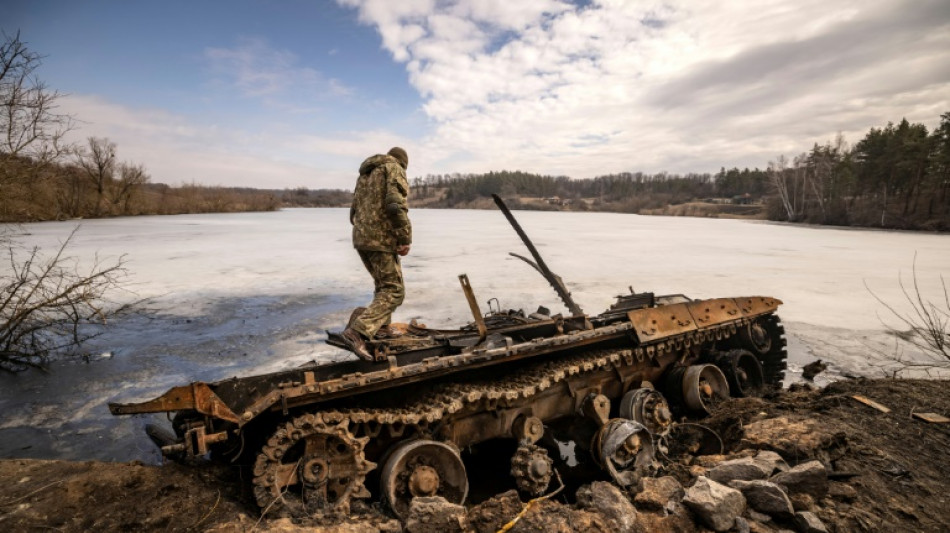
-
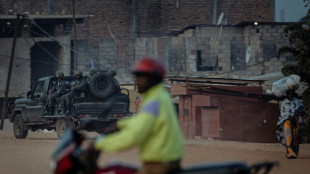 M23 militia says to pull out of key DR Congo city at US's request
M23 militia says to pull out of key DR Congo city at US's request
-
Thousands of glaciers to melt each year by mid-century: study
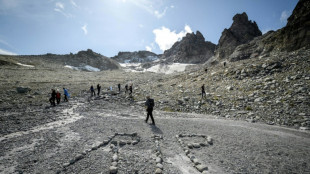
-
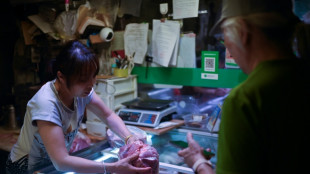 China to impose anti-dumping duties on EU pork for five years
China to impose anti-dumping duties on EU pork for five years
-
Nepal starts tiger census to track recovery

-
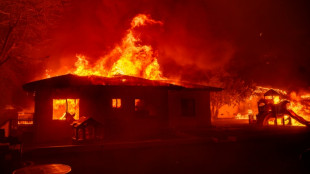 Economic losses from natural disasters down by a third in 2025: Swiss Re
Economic losses from natural disasters down by a third in 2025: Swiss Re
-
Indonesians reeling from flood devastation plea for global help
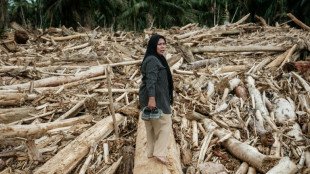
-
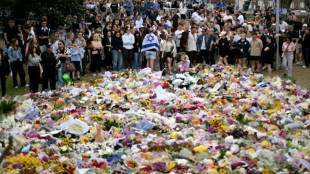 Timeline: How the Bondi Beach mass shooting unfolded
Timeline: How the Bondi Beach mass shooting unfolded
-
On the campaign trail in a tug-of-war Myanmar town

-
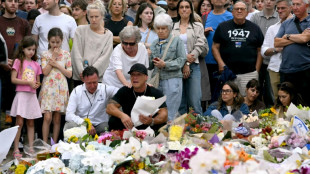 Bondi Beach suspect visited Philippines on Indian passport
Bondi Beach suspect visited Philippines on Indian passport
-
Kenyan girls still afflicted by genital mutilation years after ban
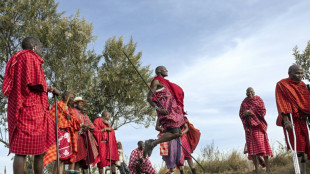
-
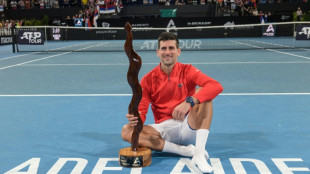 Djokovic to warm up for Australian Open in Adelaide
Djokovic to warm up for Australian Open in Adelaide
-
Man bailed for fire protest on track at Hong Kong's richest horse race
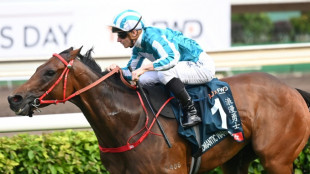
-
 Men's ATP tennis to apply extreme heat rule from 2026
Men's ATP tennis to apply extreme heat rule from 2026
-
10-year-old girl, Holocaust survivors among Bondi Beach dead
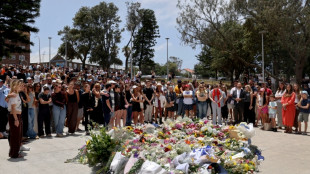
-
 Steelers edge towards NFL playoffs as Dolphins eliminated
Steelers edge towards NFL playoffs as Dolphins eliminated
-
Australian PM says 'Islamic State ideology' drove Bondi Beach gunmen
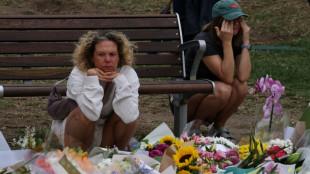
-
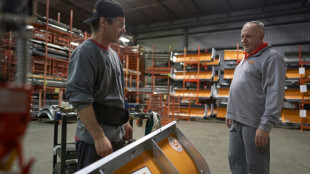 Canada plow-maker can't clear path through Trump tariffs
Canada plow-maker can't clear path through Trump tariffs
-
Bank of Japan expected to hike rates to 30-year high

-
 Cunningham leads Pistons past Celtics
Cunningham leads Pistons past Celtics
-
Stokes tells England to 'show a bit of dog' in must-win Adelaide Test
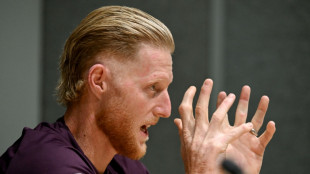
-
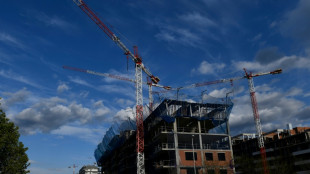 EU to unveil plan to tackle housing crisis
EU to unveil plan to tackle housing crisis
-
EU set to scrap 2035 combustion-engine ban in car industry boost
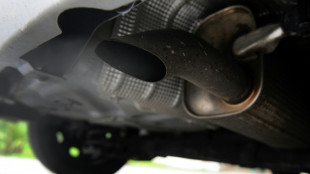
-
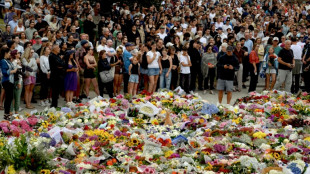 Australian PM visits Bondi Beach hero in hospital
Australian PM visits Bondi Beach hero in hospital
-
'Easiest scam in the world': Musicians sound alarm over AI impersonators

-
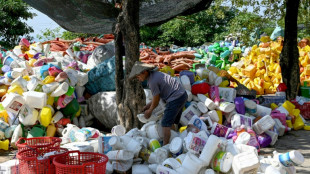 'Waiting to die': the dirty business of recycling in Vietnam
'Waiting to die': the dirty business of recycling in Vietnam
-
Asian markets retreat ahead of US jobs as tech worries weigh
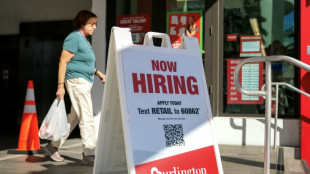
-
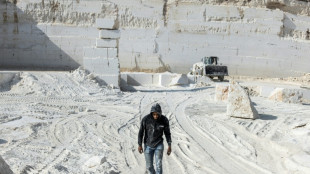 Famed Jerusalem stone still sells despite West Bank economic woes
Famed Jerusalem stone still sells despite West Bank economic woes
-
Trump sues BBC for $10 billion over documentary speech edit
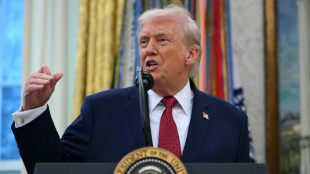
-
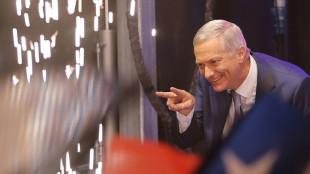 Chile follows Latin American neighbors in lurching right
Chile follows Latin American neighbors in lurching right
-
Will OpenAI be the next tech giant or next Netscape?

-
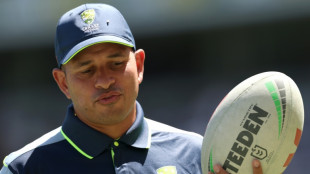 Khawaja left out as Australia's Cummins, Lyon back for 3rd Ashes Test
Khawaja left out as Australia's Cummins, Lyon back for 3rd Ashes Test
-
Australia PM says 'Islamic State ideology' drove Bondi Beach shooters
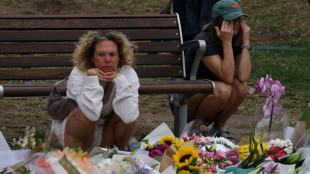
-
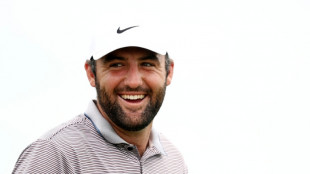 Scheffler wins fourth straight PGA Tour Player of the Year
Scheffler wins fourth straight PGA Tour Player of the Year
-
New APAC Partnership with Matter Brings Market Logic Software's Always-On Insights Solutions to Local Brand and Experience Leaders

-
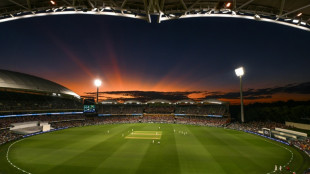 Security beefed up for Ashes Test after Bondi shooting
Security beefed up for Ashes Test after Bondi shooting
-
Wembanyama blocking Knicks path in NBA Cup final

-
 Amorim seeks clinical Man Utd after 'crazy' Bournemouth clash
Amorim seeks clinical Man Utd after 'crazy' Bournemouth clash
-
Man Utd blow lead three times in 4-4 Bournemouth thriller
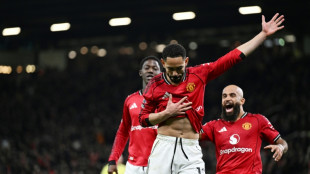
-
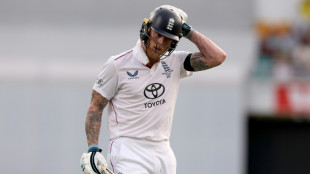 Stokes calls on England to 'show a bit of dog' in must-win Adelaide Test
Stokes calls on England to 'show a bit of dog' in must-win Adelaide Test
-
Trump 'considering' push to reclassify marijuana as less dangerous

-
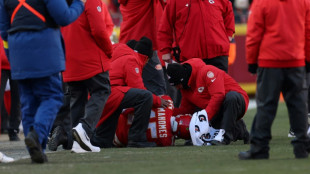 Chiefs coach Reid backing Mahomes recovery after knee injury
Chiefs coach Reid backing Mahomes recovery after knee injury
-
Trump says Ukraine deal close, Europe proposes peace force
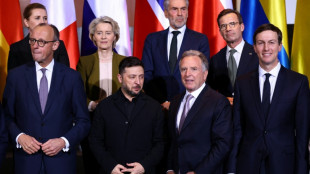
-
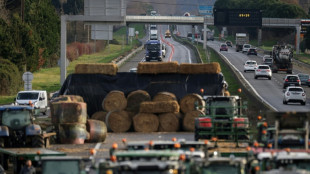 French minister urges angry farmers to trust cow culls, vaccines
French minister urges angry farmers to trust cow culls, vaccines
-
Angelina Jolie reveals mastectomy scars in Time France magazine

-
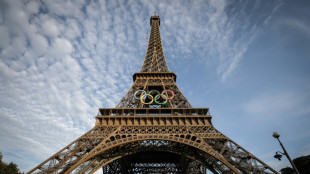 Paris Olympics, Paralympics 'net cost' drops to 2.8bn euros: think tank
Paris Olympics, Paralympics 'net cost' drops to 2.8bn euros: think tank
-
Chile president-elect dials down right-wing rhetoric, vows unity
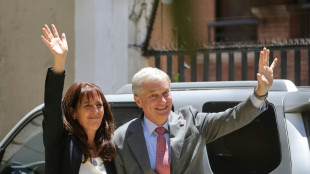
-
 Five Rob Reiner films that rocked, romanced and riveted
Five Rob Reiner films that rocked, romanced and riveted
-
Rob Reiner: Hollywood giant and political activist

-
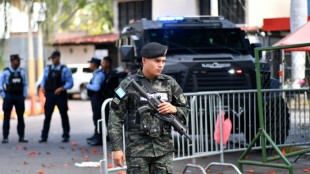 Observers say Honduran election fair, but urge faster count
Observers say Honduran election fair, but urge faster count
-
Europe proposes Ukraine peace force as Zelensky hails 'real progress' with US


How far will Russia go in new phase of Ukraine assault?
Two months after invading Ukraine, Russia says its aim is full control of the Donbas region in the east as well as the south of the country.
It is still unclear what military means Moscow will deploy in this "second phase" of the Ukraine campaign, and what medium and long-term objectives it is pursuing.
Russia appears to have learned some lessons in terms of targets and tactics from its difficulties during the first few weeks of the war, against an enemy it had clearly underestimated.
Russian troops are today present in a corridor of 200-250 kilometres (125-155 miles) inside Ukraine -- from the Sea of Azov to the outskirts of Kharkiv -- but don't have full control of the area.
- 'Full control' -
In March, the Russian army said it was focusing on the two Donbas regions, Donetsk and Lugansk where pro-Russian rebels have been active since 2014.
On Friday, Russian Major General Rustam Minnekaev was quoted as saying that "one of the tasks of the Russian army is to establish full control over the Donbas and southern Ukraine", adding this would provide "a land corridor to Crimea", the peninsula Russia annexed from Ukraine in 2014.
But this ambition brings challenges, according to Michel Goya, a former French army colonel.
"The deeper Russian forces go into Ukraine, the more vulnerable they are," he said on Twitter.
Pascal Ausseur, director of the FMES strategic studies institute, said the Russian army may well be hoping to establish an axis running from Kherson on the banks of the Dnipro River, to the city of the the same name to the north and then to Izyum in the east.
Experts no longer believe Russia has any designs on Ukraine's capital Kyiv, which appeared to be an early target of the campaign.
- 'Blitzkrieg didn't work' -
This is likely an outcome of its army's slow progress and massive losses of troops and equipment early in the war, which prompted a change in tactics.
"They realised that the Blitzkrieg option didn't work out," said Ausseur. "So they returned to the traditional Soviet bulldozer model: If you can't break the will of your enemies, you grind them down."
"They will Mariupol-ise the operation," Ausseur said, in reference to the southern port city that has been subjected to relentless Russian bombardment over the past two months, and whose inevitable fall is being delayed only by a small number of Ukrainian holdouts.
"It looks like the Russian military is simply pursuing a scorched earth approach, attempting to break the will of the Ukrainian military through the use of overwhelming force and indiscriminate shelling to force remaining civilians to flee," said Colin Clarke, senior research fellow at the Soufan Center, a think tank.
Some experts expect the Russian army to try to trap Ukrainian forces in pincer movements east of the Dnipro River.
To avoid encirclement, the defending Ukrainians may disperse into several fronts, Clarke said, in order to stretch Russian supply and communication lines. "That strategy has been successful so far," he said.
Western aid has been boosted in recent days, notably with the announcement of an $800-million military package by US President Joe Biden, specifically aimed at the struggle in the Donbas.
- 'Weeks or even months' -
But the clock is ticking. Armoured personnel vehicles "will take weeks or even months" to get to the Ukrainian army, according to Mark Cancian, a senior adviser at the Center for Strategic and International Studies (CSIS).
"Even if the vehicles come out of stocks already in Europe, they will require some servicing before they are ready for shipping," he said.
NATO countries have started supplying Ukraine with -- originally Soviet-developed -- S300 missile systems but, Ausseur noted, their deployment also takes time.
In the meantime, France said it was shipping Milan anti-tank weapons and Caesar canons to Ukraine.
But experts say Kyiv is still short of other advanced weapons, such as Howitzer canons.
Ukraine will need to establish a "dome of steel" to defend itself from air attack, said Ausseur.
- 'Need a shield' -
"They need a shield that makes the equation less favourable to the Russians," he said, adding that otherwise Russia could pursue air strikes for years.
Few observers now expect the conflict to be over soon.
"The emerging scenario is one of high-intensity bombings lasting several weeks, or maybe several months," Ausseur said.
Alexander Khramchikhin, of the Moscow-based Institute for Political and Military Analysis, said the fighting could even go on for years.
"Russia has so far achieved none of its objectives, and it's not easy to see how it will achieve them in the future," he told AFP.
M.Gameiro--PC
